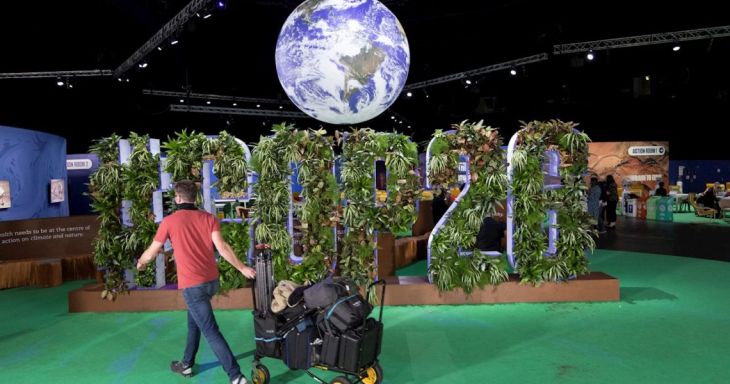Like most readers, I am far from an expert on global warming and climate change.
My exposure to the issue comes consists of my impressions of weather patterns around the world and how they are affecting us all.
Massive ice sheets are falling into the sea in Antarctica and the Arctic, raising water levels and posing a threat to coastal regions around the world.
Small island states run the risk of completely disappearing during the next decade, and glaciers in North America and Europe are melting.
The Sahara Desert continues to expand, hurricanes and tornados are growing in numbers and strength and many parts of the world are being consumed by fires that are not only taking lives and destroying property but also depleting the forests that provide us with the oxygen that we need to survive. In other parts of the world severe flooding has been the norm for the past few years leading to massive population movements and the political and financial challenges that these pose.
Finally, we are also aware of increased global temperatures around causing heat waves and drought.
Against this backdrop, the COP26 took place in Glasgow last week, bringing together the global community in a forum to discuss and search for solutions to climate change and global warming.
Some progress was made, notably the agreement by many countries to preserve forests and to reduce methane emissions, but not enough was agreed to that would being temperature rises to a maximum of 1.5º C by 2030. Not enough was done to hold the developed world to commitments made during the past decade to help developing countries mitigate climate change and make the investments required to address climate change yet ensure economic growth during a time of pandemic. The $100 billion promised in 2015 for developing countries to address climate change have not yet materialized, and fossil fuels continue to be subsidized by major industrial powers.
One moment underscores the failure of some leaders to recognize this existential threat to humanity – the insistence of India and China to water down the text of the final agreement to call for the “phasing down” of coal usage rather than the “phasing out”.
Putting narrow national interests ahead of the interests of humanity has been the hallmark of many leaders who see no contradiction to their goal of maximizing economic growth in a global ecosystem threatened with destruction and eventual disappearance.
Reaction by many was negative despite the adoption of the agreement under the protest of many delegations.
Speaking after the COP26 concluded, UN Secretary-General Antonio Guterres said the planet was "hanging by a thread". "We are still knocking on the door of climate catastrophe... it is time to go into emergency mode - or our chance of reaching net zero will itself be zero."
"We would like to express our profound disappointment that the language we agreed on, on coal and fossil fuels subsidies, has been further watered down," Swiss environment minister Simonetta Sommaruga said. "This will not bring us closer to 1.5C, but make it more difficult to reach it."
Sara Shaw, from Friends of the Earth International, said the outcome was "nothing less than a scandal. Just saying the words 1.5 degrees is meaningless if there is nothing in the agreement to deliver it. COP26 will be remembered as a betrayal of global South countries."
Lia Nicholson, delegate for Antigua and Barbuda, and speaking on behalf of small island states, said: "We recognise the presidency's efforts to try and create a space to find common ground. The final landing zone, however, is not even close to capturing what we had hoped."
Common sense dictates that we all look at climate change as an existential threat within our lifetimes.
Yet, as Voltaire once noted, common sense is not so common.
Many changes are already underway. Energy efficient products abound in the global marketplace. Strides are being made in adopting renewable sources of energy. Automobile producers are beginning to phase out gasoline engines and replacing them with electric cars.
However, until major polluters like India and China conclude that their continued use of coal to produce electricity is directly responsible for global warming and its impact on our shared environment, and until governments stop subsidizing the extraction and transmission of fossil fuels and their derivatives and replace these with renewable sources of energy whose production can create millions of well-paying jobs, we will continue to miss our goals and continue endangering our very survival.
There is no tomorrow unless we take difficult decisions today.
We must realize this, and our leaders must act upon this, if we are to ensure our survival.
Edición: Laura Espejo
Ninguno aceptó hacer públicos los montos de sus cuentas bancarias
Gustavo Castillo García
Los Rayados permanecen en el sexto lugar de la tabla general con siete puntos
La Jornada
'El Rebaño Sagrado' lidera el torneo Clausura 2026
La Jornada
Los documentos muestran un presunto flirteo entre Wasserman y Ghislaine Maxwell
Afp
